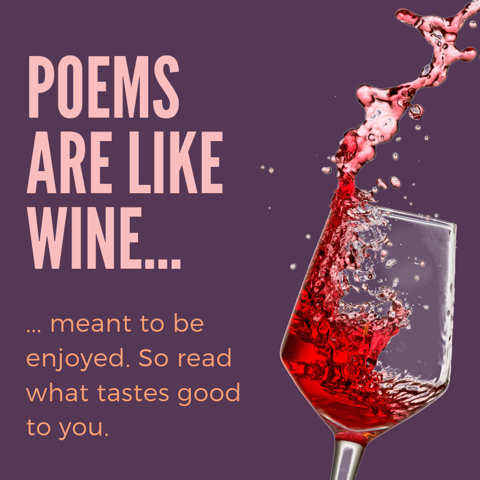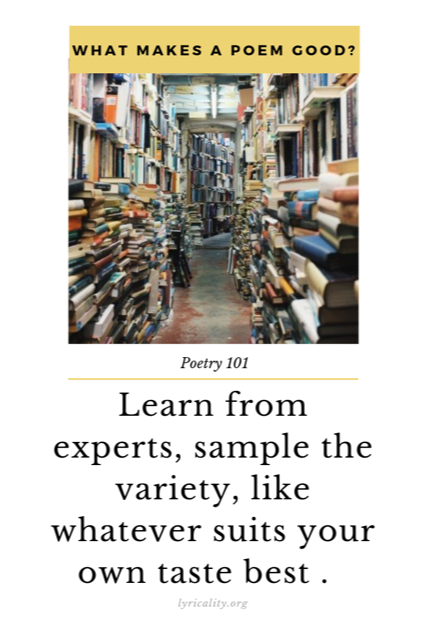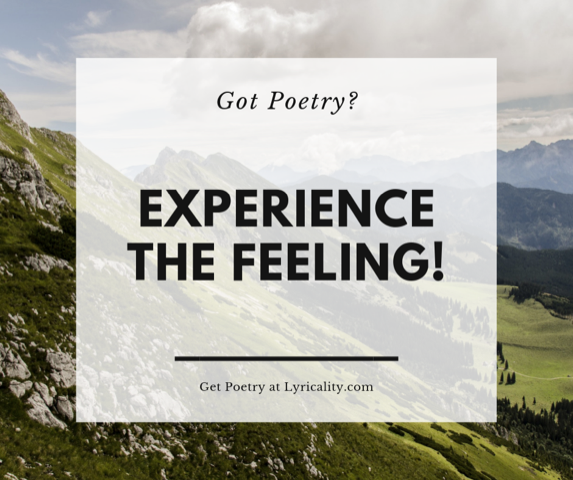For some people, there is only Poetry (too often pronounced with a capital P and a snobbish, breathy accent), and everything that fails to meet their rigorous standards is NOT Poetry, is inferior, cheap swill. While we at Lyricality admire literary poetry, we stand against any limiting, elitist judgments of language art. Poems are like wine, meant to be enjoyed, to enhance our experience of the present moment. Feel free to like whatever tastes good to you.
Poems are like wine…

Literary poetry, if not the only good Poetry, is the better-known, officially sanctioned stuff, the pool from which award-winners get selected. Some people might think all poetry irrelevant, ivory-tower hoity-toity, published by journals with names like The Yale Review, The Paris Review, and The Beloit Poetry Journal. But even the most literary poetry is not exclusively for intellectuals, academic types, geeky introverts, and other weirdos, even if there are enough of them to make a profitable industry that churns out oodles of poems by and for professional poets. Poets & Writers Magazine claims a readership of 100,000 literary writers, and manages an online database of 272 colleges and universities offering MFA’s, where you, too, can learn to read and write poetry like a Master of the Fine Arts. Possessing an MFA is not necessary for the enjoyment of fine poetry, however.
The word literary, in front of the word poetry, serves a useful function. It tells us someone who knows poetry believes this poem is skillful, meaningful, and worth swirling around in your mouth. But literary can also limit poetry’s mass appeal. And that’s too bad.
Literary is to poetry what classical is to music. Classical tells us something about a type of music, but it also can exclude people who assume they’re not smart, rich, or stuffy enough to like it. Yet within that vast genre, there is probably at least one aria or prelude or symphony that will touch and move you like no other music could.
Sure, some poetry is sophisticated and challenging, but a lot of it is so delightfully clear, a child could “get” it. Athough “getting” poetry isn’t the point. It’s about simply experiencing it and feeling something in response. And it’s perfectly okay if your response is, Meh. If you keep sampling, you’re sure to find something that gives you a happy buzz, or hits you like a gut-punch, or sends you on a loopity-loop ride on the world’s tallest roller coaster.
What makes a poem good?

Essentially, literary is a term that serves to sanction poets and their poems, the way museums enhance the cultural value of the painters and sculptors whose art is displayed. The term literary is an endorsement from the inner circle—the critics, professors, sanctioned organizations and foundations, editors, and professional practitioners—who have studied to know the difference between excellence in poetry and the cheap stuff. Value judgements are designed to make some people seem more important than others. But like all experts, sometimes poetry gurus are right on, and sometimes they get snookered by a highfalutin’ reputation. And sometimes they’re so opinionated and close-minded, that they’re creepy, arrogant boors.
Poems shouldn’t intimidate us. They’re things made by humans from ordinary words, they way wine is nothing more than a drink made from fermented fruit. If poets are like winemakers, then literary editors and critics are like sommeliers. It’s helpful to listen to the professional choosers and presenters of a large world with a deep history, like wine, like poetry. Experts possess a comprehensive education, and hopefully they also have refined sensibilities. They are able to offer up a wide range of poems and poem-makers we might never have discovered. They can educate us about poetry in general, as well as about a specific poem’s characteristics, qualities, strengths and weakness. They can lead us to poems that suit our taste preferences. and occasionally, they should challenge us to stretch, explore new worlds, grow our appreciation. But in the end, if you want to find pleasure in the experience of poetry, you have to listen to yourself and trust your own judgement.
We enjoy perusing (tasting) poems because life is enhanced by poetry. We hope you’ll join us in supporting our wide-ranging Minnesota writers. You’ll find some poems that suit your taste, and you might even discover a few that will knock your socks off.
Get to know some Minnesota poets, right here.
Got Poetry?

